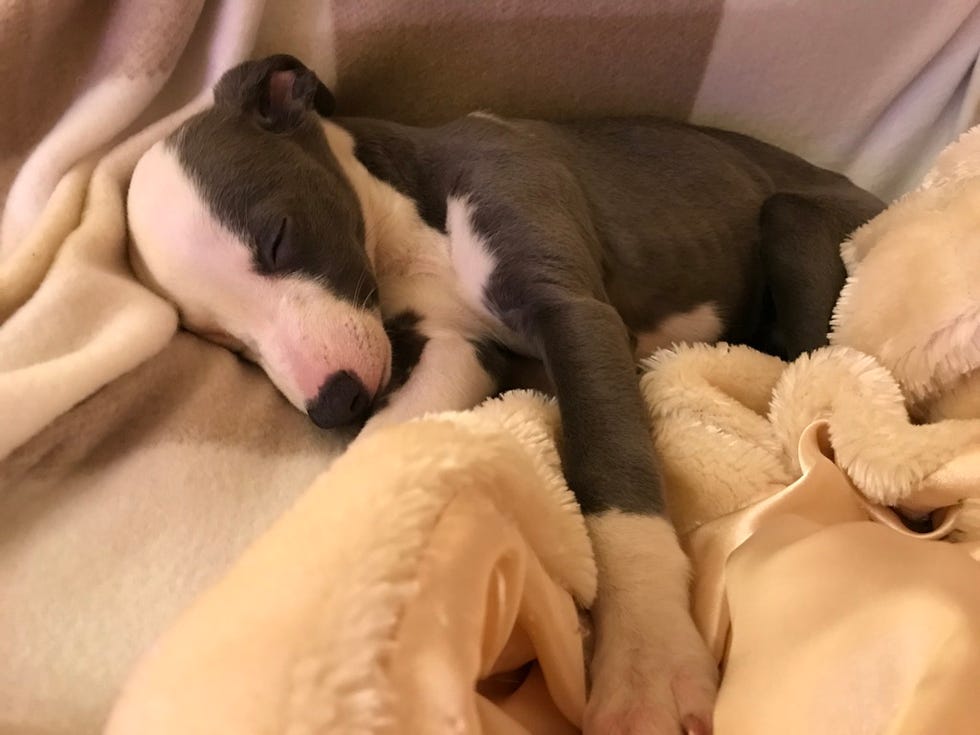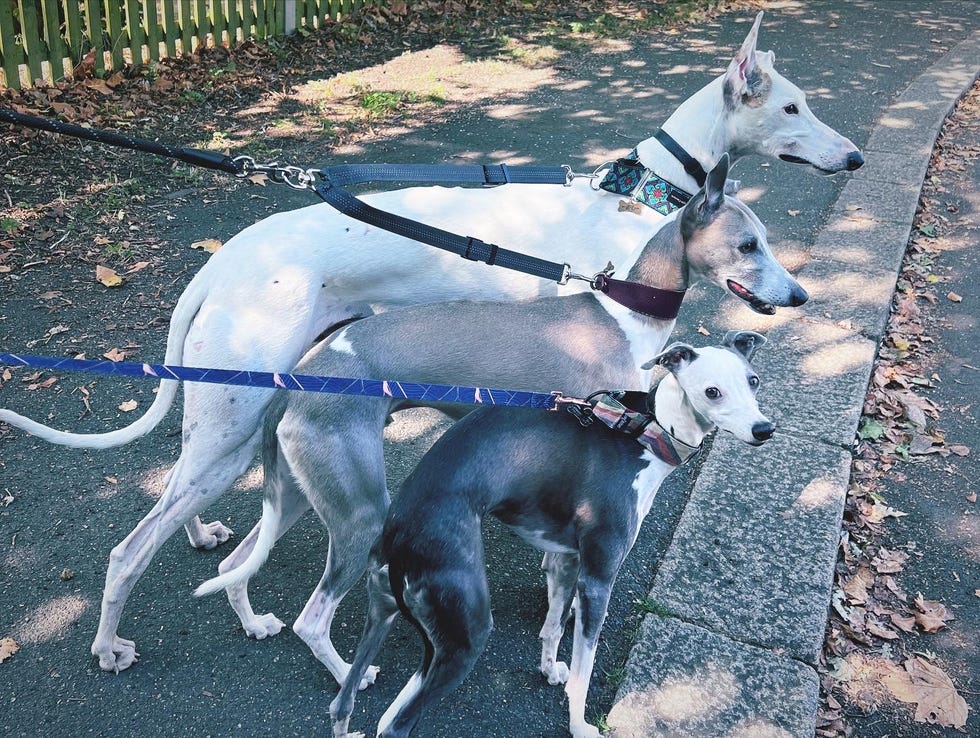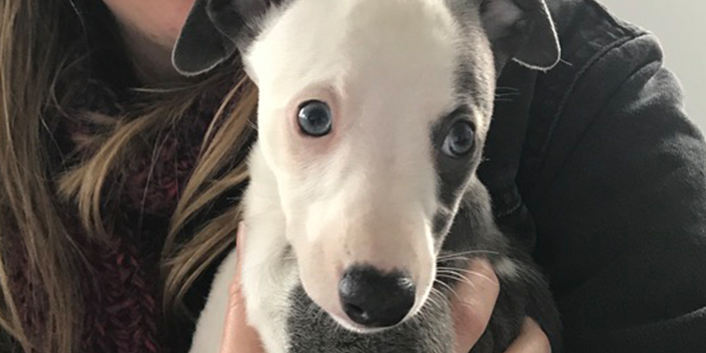
Beth Ashton
Have you ever experienced something so devastating – the loss of a loved one, a terrible break up – that you look around expecting the world to stop with you? Instead, people carry on as though nothing is wrong. Living with depression can feel a lot like that. When it takes hold, work, friendships and relationships feel overwhelming, and even the ability to cook a meal or take a shower can feel impossible.
Like so many others, my mental health doesn’t have a beginning or an end. It just is. I’ve lived with depression for as long as I can remember – even as young as 14. Now in my mid-30s, I’m still learning how it shapes my life and ripples out to affect those around me.
‘Looking after myself felt impossible’
When you’re disconnected from life for so long by depression, everything starts to feel meaningless and, in 2017, I hit my lowest point. I’d been signed off work by my GP and hadn’t left the house or even got dressed for weeks. I could barely function. I couldn’t picture a future for myself and, truthfully, didn’t believe I deserved one. As I started thinking about plans to end my life, I realised I couldn’t keep myself safe any more. I confided in a friend who helped me contact a crisis team near where I lived in Manchester.
The team were so supportive and we put a plan in place for me to visit them twice a week. Some days, I couldn’t even make it out of the house for the appointments, so the crisis workers came to me as I lay frozen on the sofa. The idea of looking after myself felt impossible. One day, one of the team gently suggested a strange idea.
‘Imagine you’re looking after a dog,’ she said.
‘A dog?’ I asked.
‘Yes. What would you name her?’
‘Uh… Gracie?’ I replied.
‘And if Gracie was hungry, what would you do?’
‘I’d feed her… I suppose.’
It sounds simple, and maybe even a little bit silly, but something about this concept stuck with me. Each day became a tiny checklist I’d run through in my head: pull the duvet back, put your feet on the floor, stand up and feed imaginary Gracie. Every step was a slog, as though there was an opposing force pushing against me. But I kept trying. Days passed with tiny improvements until, after a couple of weeks, I could get dressed. After a month, I was making it to all of my appointments.
‘Something about it just felt right’
I couldn’t believe the difference. I thought, ‘If I’m going through the motions of caring for an imaginary dog, why not try the real thing?’ As a child, I’d had many pets – a canary, budgie, hamster, countless goldfish – but never a dog. Everyone around me – my mum and my friends included – thought this was a very bad idea. How could I look after a dog when I couldn’t even look after myself? I knew that it was a huge responsibility, but something about it just felt right. I started looking for dogs online and fell in love with a tiny, blue and white, 12-week-old whippet. I looked at the face in the photograph on the screen and knew that was my real-life Gracie.
I don’t think it’s an exaggeration to say that Gracie changed my life – possibly even saved it. What I’d been unable to do for myself, I found myself able to do for her. I had to get out of bed so I could feed, walk and train her. It was the fact that I had someone to care for that pulled me back into the real world. Gracie didn’t care that I had depression – she didn’t have to walk on eggshells around how I was feeling, she was just so happy to see me every morning. I felt a deep connection with her immediately.
‘Gracie gave me a reason to try’

Beth Ashton
When the fog of depression told me I couldn’t do anything, Gracie gave me a reason to try. I made a promise to myself: for every act of care I gave to Gracie, I’d do one for me. If she ate, I’d eat. If she went outside, I’d try to speak to someone. I discovered that being a dog owner comes with a built-in community – people who don’t know each other’s names but know each other’s dogs. They stopped to chat and I had to talk back. Now, wherever we walk, I can connect with people easily. With time – and the steady support of therapy, medication and Gracie – the fog began to lift.
And I have more than my mental wellbeing to thank Gracie for. A mutual friend put in a good word for me with a girl I liked and told her I had a whippet. I brought Gracie on the first date to a restaurant in Brixton in 2018, but was mortified when she ate a slice of pizza out of my date’s hand. But I needn’t have worried as, in fact, it broke the ice and we’ve been together ever since. Four years later, we got married and Gracie, alongside two more sighthounds we’ve since rescued, walked us down the aisle. Gracie has been there through it all – the very worst and now the very best of times.

Beth Ashton
It’s been seven years since Gracie came into my life and I’ve learned a lot about what it means to live with depression. It’s not something that will ever vanish completely, and sometimes it arrives without warning, as though the floor has dropped out from under me. But now I have the tools, support and a better understanding of what I need – and part of what I need is Gracie, still walking beside and supporting me, every day.
To mark her journey, Beth is taking on the huge personal challenge of an Ironman 70.3 triathlon to raise money for Rethink Mental Illness. Her goal is to help others get the same support she was lucky to receive. The fee for this article has been donated and you can help fundraise here.
If you (or someone you know) need(s) help, support or more information around mental health, visit Rethink Mental Illness, Mind or the NHS.
Related Story
